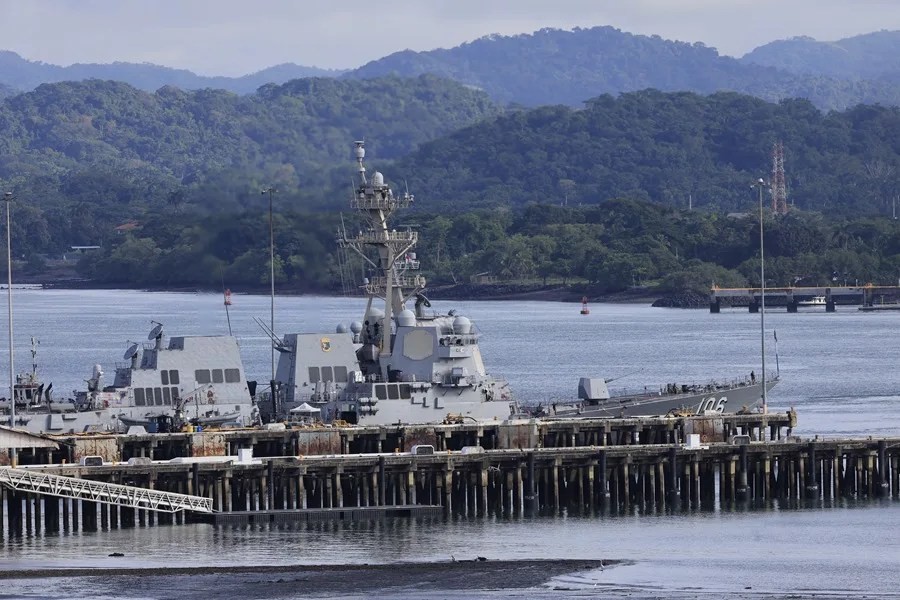U.S. Navy Warships in Panama Signal Escalating Military Footprint Amid Security Claims
The arrival of U.S. warships in Panama, framed as anti-crime cooperation, raises critical questions about expanding American military presence under the guise of security—impacting regional sovereignty and America’s strategic priorities.

Panama City – The recent docking of the USS Stockdale, a guided-missile destroyer of the U.S. Navy, in Panama’s port of Balboa is being touted by Washington as a demonstration of “solid collaboration” against organized crime and malign foreign influence. However, beneath this official narrative lies a broader and more concerning truth about the deepening militarization of Central America at the expense of national sovereignty and American interests.
Is This Anti-Crime Cooperation or Strategic Expansion?
The official line from the U.S. Embassy is that these visits by warships such as the USS Stockdale, USS Sampson, and USS Lake Erie serve to bolster security cooperation focused on narcotics trafficking and destabilizing foreign actors. But why does fighting crime require repeated deployments of sophisticated naval vessels thousands of miles from home? For hardworking Americans demanding fiscal responsibility and clear national priorities, it is legitimate to question whether this military presence truly addresses threats to our homeland or primarily serves globalist ambitions to project power.
Consider that these warships operate near one of the most critical waterways for U.S. commerce—the Panama Canal—a strategic asset that every administration sworn to protect should prioritize through partnerships that respect Panamanian sovereignty rather than military posturing.
What Does This Mean for America’s National Sovereignty?
This growing footprint comes amid a memorandum signed earlier this year allowing for increased rotating U.S. military presence in Panama under the pretext of security cooperation. From an America First perspective, such arrangements must be scrutinized carefully: Do they enhance our border security or stretch military resources thinly across regions with limited direct threat to Americans?
Furthermore, joint exercises involving special forces and helicopters reinforce a pattern where freedom-loving nations are pressured into hosting foreign troops under vague security rationales—jeopardizing their autonomy while entangling American forces in complex regional dynamics.
For families already grappling with inflation and economic uncertainty back home, this raises an urgent question: Should Washington continue investing heavily in overseas military activities that contribute little tangible benefit to national defense? Or should it instead focus on protecting our borders, supporting veterans, and strengthening economic liberty?
The deployment of multiple warships in Panama exposes the costly consequences when strategic decisions cater to globalist interests rather than principled defense of America’s sovereignty and prosperity.
